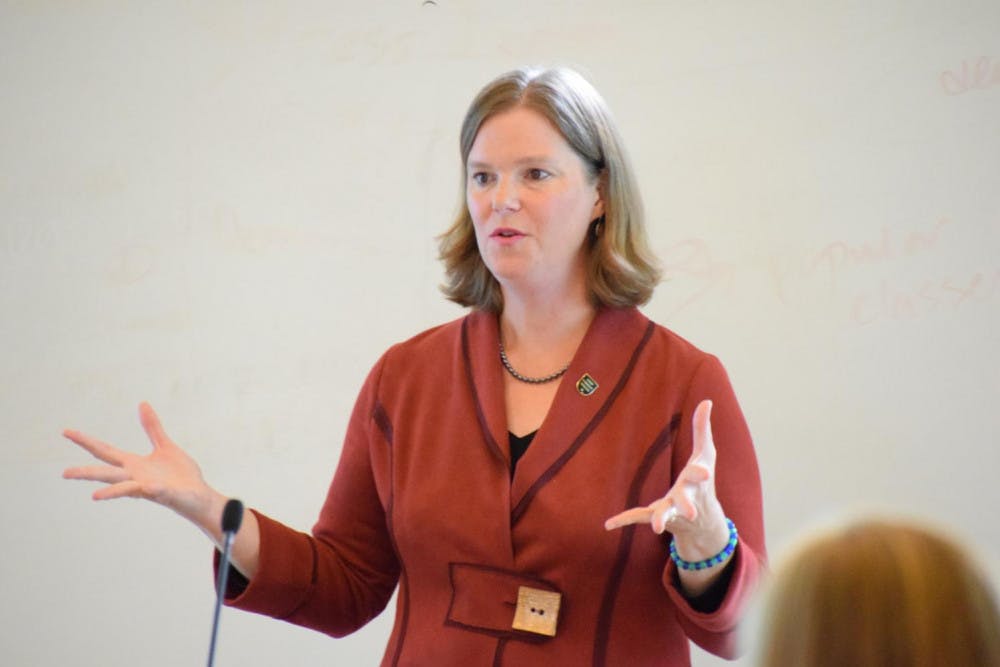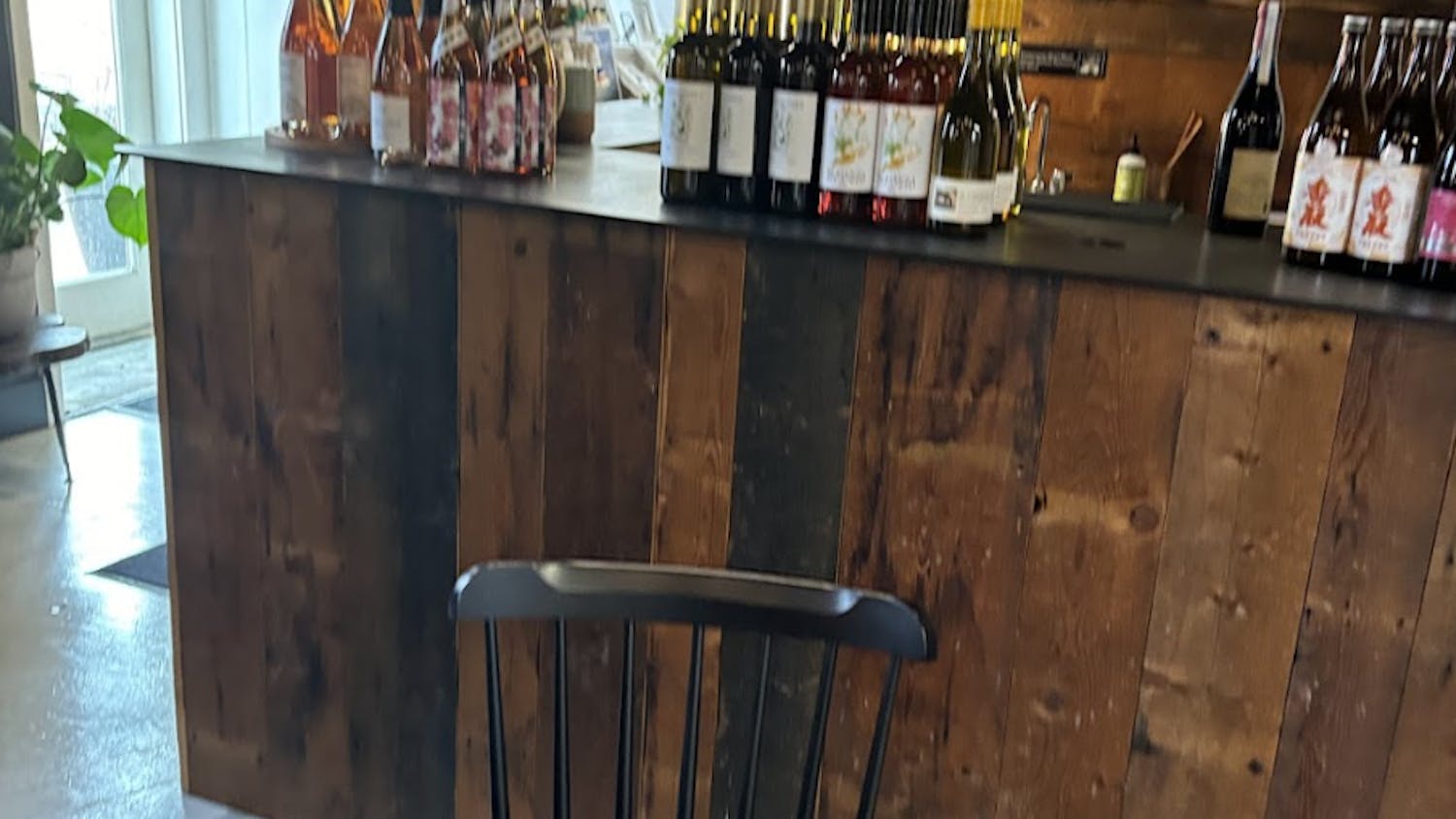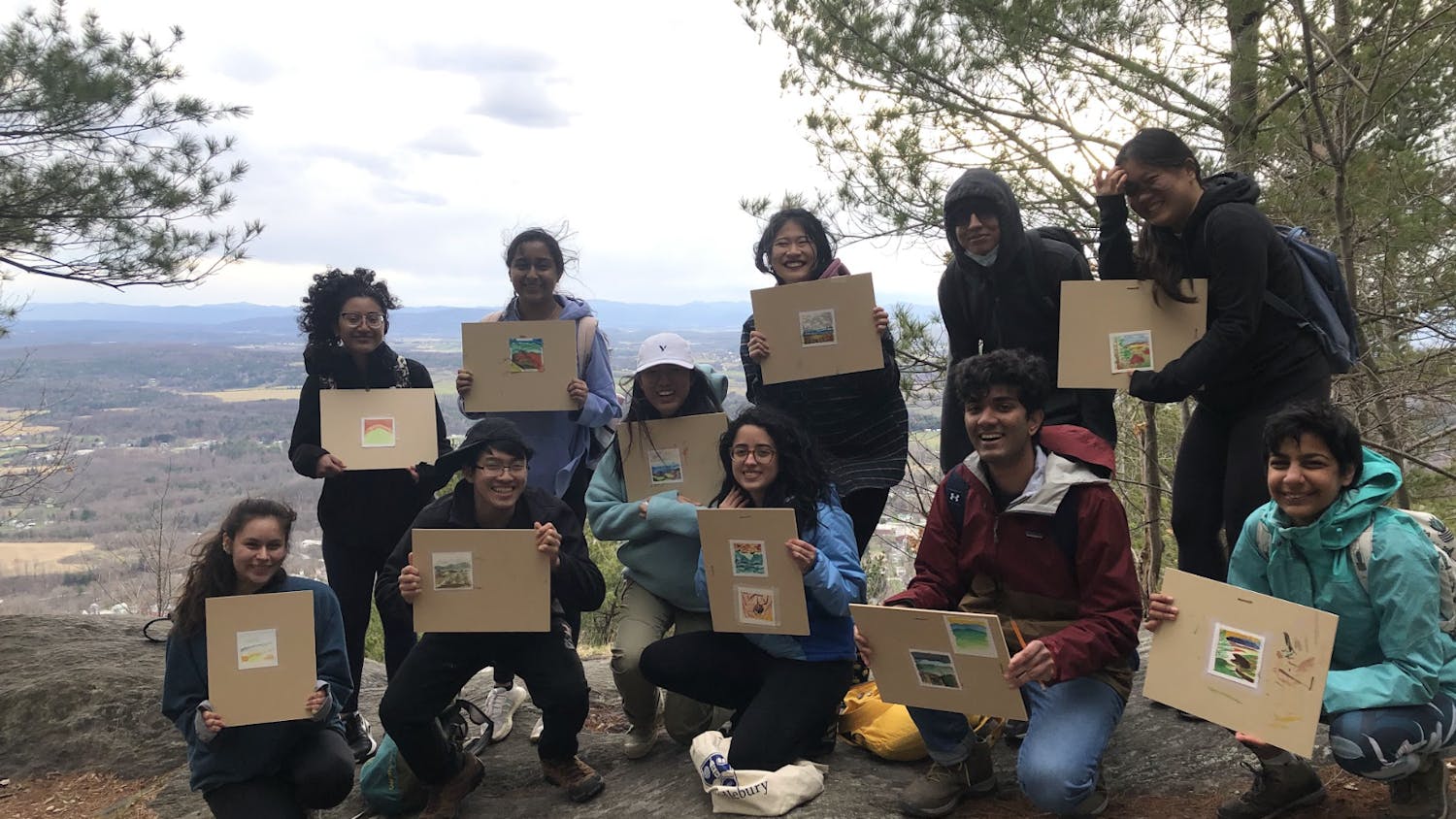Covid-19 has dramatically changed the landscape of life in Addison County and across the state of Vermont in the past few weeks. Middlebury College suspended in-person classes on March 10, and local businesses have been floundering following a March 24 state-issued “Stay Home, Stay Safe” order. As of April 1, Vermont had 321 confirmed cases of Covid-19, including 16 deaths.
To get a closer look at the biggest challenges facing state lawmakers and the Addison County community, we interviewed State Senator Ruth Hardy (D-Addison District) in an email.
The interview has been condensed and lightly edited.
THE MIDDLEBURY CAMPUS: Do you think the federal government is doing enough to support small businesses and individuals who lost their jobs due to close-downs?
RUTH HARDY: The federal response has been inadequate and problematic. The federal administration did not do enough to prepare for this pandemic months ago, [like] ensuring our country had sufficient medical supplies, clear public guidance and systemic support in place to deal with a crisis of this magnitude. That lack of planning, accurate communication and support has made the crisis even worse for our country. Congress has stepped into action recently, passing three Covid-19 emergency aid packages aimed at helping businesses, individuals, health care providers and state & local governments. Whether this aid will be enough remains to be seen.
MC: How prepared do you think Addison County and its medical services are for the outbreak? Currently, Porter Hospital is offering drive-through testing, but according to an article by Addison Independent, they seem to be not as accessible as advocated. Will there be any more actions taken to make testing more accessible and affordable to the general population?
RH: State and local efforts to test people for Covid-19 have been hampered by the fact that our entire country does not have a sufficient number of test kits to serve our population. The federal administration failed to adequately prepare for this crisis by ensuring access to medical equipment and tests. Therefore, Vermont officials have had to reserve testing for healthcare providers and the most vulnerable populations. Governor Scott has ordered that Covid-19 tests will be provided free of charge, but there simply are not enough test kits to meet demand.
MC: As schools are closing all over the county, will there be any support for digital learning at home and for students with difficult situations back home?
RH: Our local school districts are stepping up to make long-term distance learning plans for students, particularly after [the March 26] announcement by Governor Scott that schools will be closed for the remainder of the school year. School districts are providing Chromebooks to students who need them and even helping their homes get connected to the internet, which is a big issue in many parts of our state. Teachers are quickly learning how to deliver content and assess progress from a distance. School personnel are calling students and families to check in on how they are doing. School-based clinicians from the Counseling Service of Addison County are continuing to provide remote services to students. School food service programs are delivering meals to any student who needs them. Some schools are providing emergency childcare for the children of essential workers.
Schools and teachers are doing a fantastic job under extremely difficult circumstances. And, even with all of these efforts, many kids will fall between the cracks, as services and education cannot be provided as effectively and personally at a distance as they can at school. In addition, some kids don't live in safe or stable households, so concerns about abuse and neglect are heightened, and social isolation can exacerbate mental health and substance use issues. For many students, school is important for a sense of community, friendships, safety and fun; without school, students can feel anxious, lonely and adrift. So while our educators are doing a fantastic job in difficult circumstances, this prolonged school recess creates many concerns.
MC: After the Covid-19 crisis, how do you see Addison county adapting to the impacts it has on us now?
RH: Our county has a strong, collective foundation on which to rebuild. We are fortunate to have strong local governments, school districts, health and social service agencies, businesses, education and arts organizations, farms and food producers and communities that will band together to ensure we can all recover together. It will certainly take time and a lot of collective effort. But this crisis has brought us together in so many ways, and I have been inspired by the many ways that members of our community have stepped up to help each other through this difficult time.
As a policy-maker, I will do everything I can to ensure that our community has what it needs to recover. I also will work with my state colleagues to identify the cracks in our system that this crisis has underscored. Too few people have adequate economic and social safety nets sufficient to get them through a crisis of any magnitude and too many people who we have identified as "essential persons" are under-valued and under-paid for the work that they do every day. We'll need to re-examine, from a systematic perspective, the delivery of healthcare, social services, education and food to ensure our systems are adequate and equitable. There will be a lot of work to do, but first we all need to stay safe and healthy through the Covid-19 crisis.
MC: Are there any additional messages that you would like to say to the College community?
RH: I know this is an extremely difficult time for college students and everyone at Middlebury College. I feel those impacts within my own household on a daily basis. I have been extremely impressed by how the college acted quickly to ensure the safety of students and has stepped up to help the broader community as well. I hope that wherever Midd students are in the world, they are staying healthy and safe. I can't wait to welcome most of you back to Middlebury next year.
For the Class of 2019.75, you will always be unique among the many Midd classes, and I hope your experience during your last semester of college shapes your determination to make our world safer and more equitable for everyone. Stay in touch, and be safe and well.
To find out more about Senator Hardy’s policies on COVID-19 and for the most updated news on COVID-19 in Addison County, see RuthforVermont.com.
Editor’s Note: Ruth Hardy is married to Middlebury College Professor of Film and Media Culture Jason Mittell, who is the Campus’s academic advisor. All questions may be directed to campus@middlebury.edu.

Florence Wu '22 is the multimedia editor specializing in photojournalism. She enjoys photography as a way of connecting with others, as well as recording special events and moments in her personal life. She is inspired by the works of Robert Frank, Joel Sternfeld, Alec Soth, Teju Cole, and Gregory Halpern. This year, she will be working on a photojournalism project on the lives of workers at the college and town of Middlebury. Feel free to contact her via email for photo, video or podcast ideas.




